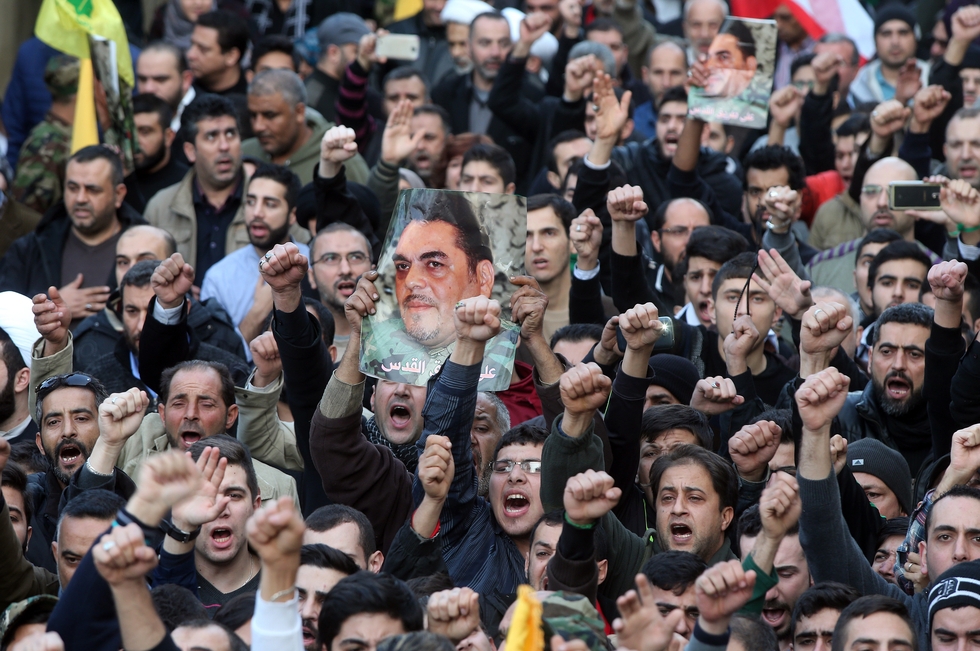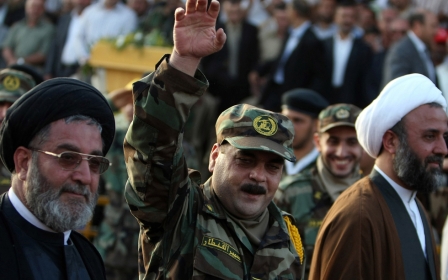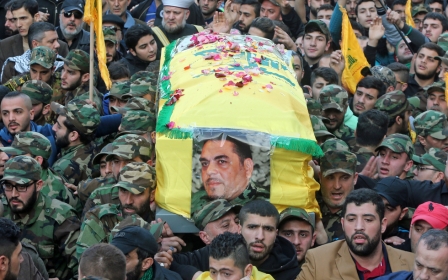Propaganda aside, Israel and Hezbollah won't go to war

The official trigger for the First Lebanon War was the assassination of an Israeli diplomat by a splinter faction of the PLO. The Second Lebanon War, the broadest military engagement in the Middle East until the Syrian Civil War came along, was sparked by a relatively small incident - a breach of Israel’s northern border by Hezbollah fighters, who made off with the bodies of three Israeli soldiers. And wars in Gaza have swelled out of border skirmishes, or sometimes began with no particular warning at all, simply because military or political opportunity beckoned.
With these precedents in mind, it’s little wonder Israel and the region held its breath as news broke that four missiles, in all likelihood from an Israeli fighter jet, annihilated Samir Kantar. Kantar, a former Palestinian guerilla, a former life prisoner in Israeli jail - the longest-held Lebanese prisoner there - and a formerly cherished trophy of the Hezbollah, who secured his release in exchange for the same three bodies of Israeli troops - was killed together with six other men, who appear to have been operatives for the National Defence Force, a Syrian regime militia.
As was the case with other sensitive attacks, Israel welcomed Kantar’s demise but stopped short of claiming credit. This allowed the Free Syrian Army to try and take responsibility for the attack, but the scale and precision of it seem to outmatch those of the opposition group. The Syrian regime appeared to hedge its bets by blaming “terrorists”, meaning the opposition, but added that “the Zionist enemy” is the first to profit from Kantar’s death, and for good measure, hinted that all Syria’s enemies were responsible - which makes for an increasingly long list. Hezbollah, who have no reason to exonerate its Syrian adversaries, firmly holds Israel responsible.
Israeli responsibility is also the accepted assumption among Israeli analysts, who, for lack of an official version, tried over the past few days to come up with interpretations of their own for the assassination. The most comprehensive one to date came from Ron Ben Yishai, Yedioth Ahronoth’s chief military correspondent and one of the journalists best connected to Israel’s intelligence and defence establishments. He posited that the killing of Kantar had to do less with the killings Kantar is most famous for - the 1979 slaying of the Haran family and two Israeli policemen - and more with the NDF’s unfolding operations, attributing to Kantar the initiative in a few unsuccessful attacks on the armistice line on the Golan.
Whatever the tactical considerations behind the killing may be, it seems safe to say most Israelis regard it as a no-brainer. The ghastly details of the attack Kantar led in 1979 on an Israeli family home - the mother, hiding from Kantar’s men with her two-year-old daughter inadvertently strangling her to death as she struggled to keep the girl from crying; the father, executed in front of his four-year-old daughter; the toddler, her head smashed in with Kantar’s rifle butt in the midst of a final stand-off with Israeli forces on the Nahariya beach - are all seared into the Israeli collective memory.
Kantar himself always maintained the last two victims died in crossfire, but few Israelis saw any reason to believe him; and even if they did, they would still hold him obviously responsible for putting the family in harm’s way. To Israel, Kantar was a reviled and unrepentant killer, and his death, for whatever immediate reason and by whoever’s hand, was long overdue.
The fallout from the assassination looks set to be limited, at best. Despite three missiles fired in Israel’s general direction from Lebanon - since claimed by a Palestinian organisation - and despite Hezbollah leader Sheikh Hassan Nasrallah’s assurance the organisation will avenge his former protege in due course, it doesn’t seem that either Israel, Hezbollah, Syria or Iran are keen to open a new front any time soon. Most certainly not over Kantar. This is one of those cases where the interests of seemingly implacable enemies coincide, and pragmatic considerations outrank symbolic figures and propaganda needs.
Israel has long used the Syrian civil war to achieve short-term tactical objectives - taking out weapon convoys travelling between Syria and Lebanon, for the most part, and interrupting paramilitary build up on the eastern slopes of the Golan Heights. But it also demonstrated a profound lack of interest in intervening in the Syrian civil war in any significant way.
The Islamic State is not seen as a particular threat - its theatre of operations is far removed, and its obvious contempt for the Palestinian national cause - or any national cause - make it sprouting a more local chapter unlikely; even the handful of Palestinians who’ve joined ISIS have so far travelled to Syria to fight, instead of trying to bring the Islamic state closer to home.
On the other side of the Syrian strife, the beleaguered state of the Assad regime brings the number of regular armies menacing Israel’s borders to a grand total of zero. Hezbollah’s involvement in the conflict distracts much of the resources of the most formidable military threat on any Israeli border, and undermines Hezbollah's political clout in Lebanon. The other groups, including Jabhat Al-Nusra, are preoccupied with fighting each other and the regime. Military buildup continues on the ceasefire line along Israeli-annexed Golan plateau, but it doesn’t yet justify going to war - in fact, many of the isolated air strikes conducted along the border recently seek to preempt just such a scenario.
Israel has also been careful not to provoke Hezbollah too much on its own turf. Although Israeli jets violate Lebanese airspace with impunity and Israeli intelligence appears to be operating in Lebanon as brazenly as before, no incursions or air raids have so far pushed the Shia party’s red lines.
Hezbollah, for its part, also does not appear eager to launch a new front with Israel just yet - partly because it is overstretched, partly because it knows Israel will once again penalise the Lebanese civilian population, at Hezbollah’s political expense.
Iran, firmly on the course of rapprochement with the West, seems content to regard Israel with aloof indifference, underlined by the diplomatic triumph of the P5+1 deal in spite of Israel’s vocal, not to say hysterical, opposition. And it should go without saying that the Assad regime has much bigger fish to fry.
This alignment of universal disinterest in a new frontier was true last week, and it remains true today, after Kantar’s assassination. Kantar himself, despite the propaganda value of his release in the prisoner exchange nearly a decade ago, does not appear to have held great military value for any party. His role in the original raid of 1979 was that of a company leader on a suicide mission, who survived by pure fortune; although his presence as a kind of mascot of armed resistance was much touted, no evidence yet emerged of a significant military contribution of any kind.
After his death, reports emerged that the end of his relationship with Hezbollah was less than amicable. These reports, likely as not, originate with Israeli intelligence, and should be treated with caution, but if true, they add yet another reason for Hezbollah not to go overboard for Kantar’s sake.
- Dimi Reider is an Israeli journalist, blogger and co-founder of +972 Magazine. His work has appeared in The New York Review of Books, The New York Times, The Guardian, Foreign Policy, Haaretz, Daily Beast, Al Jazeera and the Jerusalem Post. Dimi is also an Associate Policy Fellow at the European Council on Foreign Relations (ECFR).
The views expressed in this article belong to the author and do not necessarily reflect the editorial policy of Middle East Eye.
Photo: Lebanese mourners shout slogans during the funeral procession of Lebanese militant Samir Kantar (portrait), who was killed in a suspected Israeli air-raid on his home in the Jaramana district on the outskirts of the Syrian capital Damascus, in a southern suburb of the Lebanese capital Beirut on 21 December, 2015 (AFP).
New MEE newsletter: Jerusalem Dispatch
Sign up to get the latest insights and analysis on Israel-Palestine, alongside Turkey Unpacked and other MEE newsletters
Middle East Eye delivers independent and unrivalled coverage and analysis of the Middle East, North Africa and beyond. To learn more about republishing this content and the associated fees, please fill out this form. More about MEE can be found here.





